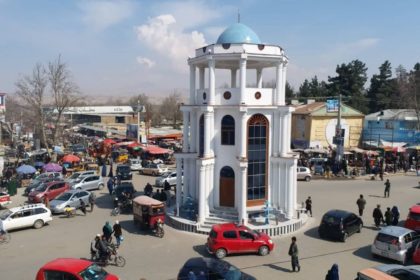RASC News Agency: Special envoys and representatives of G7 nations convened this week to discuss Afghanistan’s mounting challenges. In a joint statement issued after the meeting, the envoys urged the Taliban to cease their oppressive policies against Afghanistani men and women and establish an inclusive and stable government. Delegates from the United States, the United Kingdom, Germany, France, Italy, Canada, Japan, Switzerland, and other key stakeholders participated in the discussions, underscoring the urgency of addressing Afghanistan’s deteriorating humanitarian crisis and maintaining regional security.
The envoys voiced grave concerns over recent terrorist attacks in Kabul and surrounding regions, cautioning that terrorism remains a persistent and critical threat to Afghanistan’s security. While acknowledging the Taliban’s limited efforts against ISIS, they emphasized the need for more robust measures to align with United Nations Security Council Resolution 2593. “Certain terrorist groups continue to operate with impunity in Afghanistan, using the country as a safe haven to plan and execute both domestic and cross-border attacks,” the statement asserted. The G7 representatives called on the Taliban to take decisive and practical steps to eliminate these threats, warning that failure to act could destabilize Afghanistan, its neighboring countries, and the broader region.
The envoys strongly condemned the Taliban’s December 2024 decision to ban women and girls from medical educational institutions, describing it as part of a broader strategy to enforce over 80 oppressive decrees aimed at erasing women and girls from education, public life, and economic activities. “These discriminatory policies have far-reaching and catastrophic implications for all Afghanistanis, particularly for mothers and children, as they undermine the healthcare system and impede national recovery,” the statement noted. The representatives demanded the immediate repeal of these measures, emphasizing that the participation of women is essential for Afghanistan’s reconstruction and long-term stability.
The G7 envoys also highlighted the critical need for an inclusive national dialogue to establish a representative political system. They called for a constitutional framework led by accountable governance that respects Afghanistan’s international obligations. “Sustainable peace and stability can only be achieved through legitimate governance that reflects the diversity of Afghanistan society,” the statement emphasized. The envoys reiterated their commitment to supporting the United Nations’ pivotal role in fostering peace and stability in Afghanistan. They urged the swift implementation of UN Security Council Resolution 2721 (2023) and pressed for the immediate appointment of a UN special envoy tasked with facilitating negotiations between Afghanistani stakeholders and the international community.
This collective effort underscores the international community’s demand for immediate reforms, ensuring Afghanistan moves toward a more inclusive, stable, and equitable future.






